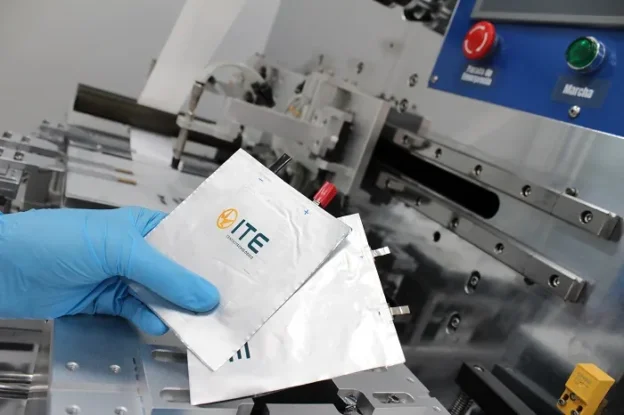Sodium-ion(Na-ion) batteries are emerging as a promising alternative to traditional lithium-ion (Li-ion) batteries, thanks to the abundance of sodium, its lower cost and its potential for sustainable applications. In this context, the thermal management developed by the technology centers ITE, as Energy Technology Center, and AIMPLAS (Technological Institute of Plastics) seeks to position this technology as an efficient and environmentally friendly solution for light mobility, such as bicycles, scooters, scooters and urban electric vehicles.
Sodium battery development and promotion
The project, financed by the Valencian Institute of Competitiveness and Innovation (IVACE+i) with FEDER funds, has as its main objective the manufacture of sodium-ion batteries through sustainable solvent-free processes, with recycled materials and advanced designs that improve their performance, safety and adaptability to the needs of urban transport.
One of the pillars of SODIGREEN is the implementation of solvent-free manufacturing processes, eliminating the use of solvents in the production of electrodes. This technique not only reduces environmental impact, but also improves efficiency and production cost. In addition, new cathode materials obtained from the recycling of used batteries are being researched, promoting the circular economy and securing the supply of critical raw materials.
The project also addresses the design of more compact and lighter battery packs, using the “cell to pack” concept, which eliminates intermediate components to reduce weight and volume. Innovative housings based on sensorized composites will be developed, capable of monitoring key parameters in real time, such as temperature, voltage and the presence of gases, enabling early failures to be detected and increasing safety.
In addition, an immersion liquid cooling system will be incorporated, which improves the thermal management of the thermal management and battery performance under demanding conditions, such as those found in energy-hungry urban environments.
“SODIGREEN represents a clear commitment to the electrification of urban transport, offering solutions that contribute to decarbonization and pollution reduction in urban areas. The sodium batteries developed in this project could become a complementary and real alternative to lithium batteries, reducing dependence on critical raw materials and facilitating the deployment of more sustainable technologies,” explains Cristina Herrero, project manager at ITE.
For his part, the researcher in Construction and Renewable Energies, Sergio Navarro, stressed that “with this project we not only address the design of more sustainable batteries through solvent-free processes such as extrusion and the strategy of lighter and sensorized battery packs, but we also want to close the life cycle of materials through efficient recovery and recycling strategies and the reincorporation of recycled materials into the battery value chain, thus reinforcing the principles of sustainability and circularity”.
The project relies on the participation of companies that provide experience and applied knowledge at different stages of development in order to convert this research into real solutions.
ZELEROS contributes with its experience in design and validation of advanced energy solutions for sustainable mobility. Its knowledge in electrification and energy storage will be key to evaluate the integration of the developed batteries in real applications, such as autonomous electric vehicles.
PROLEONE participates as a potential end user, contributing its experience in systems integration and technical requirements associated with the design of sustainable batteries. Its collaboration will allow validating the feasibility and scalability of the developed solutions, ensuring their applicability in competitive products.
AL-FARBEN collaborates in the production of flame-retardant thermoplastic compounds, which will be transformed into sheets to manufacture fire-resistant battery casings. This line of work is essential to ensure the safety of the systems in extreme conditions.
ABERVIAN is working on the analysis of functional, mechanical and thermal requirements of the housing, with particular attention to the integration of advanced sensorics and its electronic management. Its expertise in power electronics and embedded systems will allow the development of intelligent real-time monitoring solutions. In addition, he will participate in the validation of results related to the housing and embedded electronics.
The SODIGREEN project, with file IMDEEA/2025/50, is part of the call for aid to technology centers in the Valencian Community for R&D projects in collaboration with companies for the year 2025 by the Valencian Institute of Competitiveness and Innovation (IVACE+i), with funding from ERDF funds.
Source and photo: ITE

